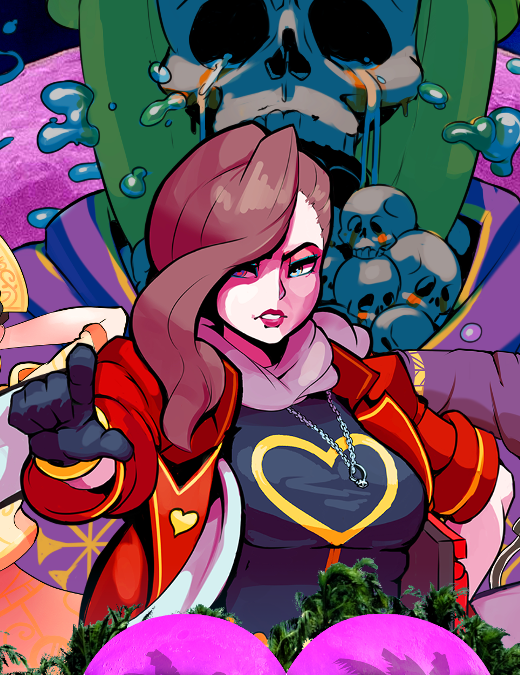Post-Game: Spiritfarer
Generally speaking, I don’t believe popular games deal with the idea of loss all that well. It’s a heavy subject, of course, but death is omnipresent in video games and so rarely treated with any level of gravity. When some pivotal character passes away, it often feels less like a tacit admission of the fact that we all go out, and more like a crass plot device: a motivator for revenge, because the death itself is less important than the killings that follow. In the last few years, a few games explicitly attempt to tackle this, ranging from 2017’s What Remains of Edith Finch and A Mortician’s Tale to last year’s tremendous Outer Wilds.
Imagine my surprise upon digging into Spiritfarer, a game that bills itself from the outset as “a cozy management sim about dying.” Delivering on one grounded, human relationship is hard enough, but the team at Thunder Lotus manage to flesh out an entire cast in ways that make them believable, understandable, and familial. At its core, it’s a remarkable game that tugged at my heart more than most things have in a decade.
“SPIRITFARER
(Nintendo Switch, Playstation 4, PC, Xbox One)”
Spiritfarer opens by placing you in the comfy shoes of Stella, a younger woman tasked with taking over for Charon, the Greek ferryman of the dead. The objective: guide wayward souls through their final wishes and days of existence, before bringing them to the Everdoor and whatever comes next. The problem: spirits are fickle, they get hungry, and they all need somewhere to stay while on their voyage. Complicating things further, Charon’s boat is out of commission as soon as he is. You’ve got to build your own.
Play revolves around these ideas - keeping your spirit passengers cozy and well-fed, while sailing to islands full of characters, materials and blueprints that expand and diversify your vessel. From the jump, it’s incredibly satisfying to move around in the world, made even more fun by abilities that further flesh out Stella’s already-remarkable maneuverability. Though there are plenty of things to do while you’re moving between locations - fishing, cooking, smelting ore, and more - sometimes I got enough joy out of simply sliding down the slanted roofs on my boat, jumping and twirling my way through the air.
The surprising thing about Spiritfarer, beyond its narrative conceit and its delightful writing, is how strangely resplendent with mini-games it is. Some activities on your boat are set-and-forget, leaving pork chops in the oven or yoghurt in the cellar to ferment into cheese. Others will put you to work as you carefully time your loom to make fabrics, or rush across the surface of your boat to collect lightning in a bottle. Apart from the smithing mini-game that goes on for far too long for your final reward, they’re all fairly quick and feel like welcome changes of pace in the course of travel.
Even with all the pleasantries baked in to how it plays, Spiritfarer’s cast is what elevates it into something special. In the course of your time with any individual, you’ll be treated to plenty of conversations shedding light on their backstory, their relationship to Stella, and - to some extent - the way they’ve ended up on your boat. They all have their own quirks, as well. Your uncle Atul loves any food you give him and loves woodworking, occasionally giving you some spare wooden planks. The delightful little mushroom person, Stanley, co-opts the guest house and turns it into his own little treehouse. The writing is all smart as hell, often funny, and the personalities are diverse enough that no one feels like they’re stepping on each other’s toes.
Learning the realities of these characters makes it that much harder to deal with the knowledge that, eventually, they will all leave. When a person’s home is fully furnished, and all of their outstanding tasks are taken care of, they will ask you to ferry them home. It hurts, and it’s powerful. Some of the final speeches these characters give are nothing short of heartbreaking. There were several instances where that weight got…a little too real, and I had to stop playing for the night. I think those speeches - and, in a greater sense, Spiritfarer as a whole - don’t work without the emotional bonds you form with these characters. Losing characters you’ve spent hours feeding, getting to know, and helping out in a myriad of ways is a deep sting. Such is the burden of the Spiritfarer.
The only real detractor to be found is that the actual arc of your time with the game will likely go on for longer than it needs to to get its point across. My playtime crossed the 25-hour mark, and after twenty hours or so, it felt like the back half loop of crafting, building, and managing your passengers’ expectations wore a little thin. It’s not a big complaint, but when I received the option for the final quest, I was ready to wrap it up instead of seeking out the handful of extra sidequests to take me to 100% completion.
More often than not, the games I end up loving the most are ones that come out of nowhere. I hadn’t heard of Spiritfarer before its release, and it immediately catapulted itself into one of my favorite games of 2020. It’s a joy to move around in, the cast is endearing and deeply human, and the moments where you’re able to breathe and let it all sink in are something to treasure. I’m so glad it’s a thing that exists.
Spiritfarer: “Highly Recommended”
Spiritfarer is available on Xbox One, Playstation 4, Nintendo Switch,
and PC via Steam, GoG and Xbox Game Pass for PC.
Reviewed with a copy acquired via the Xbox Game Pass.








